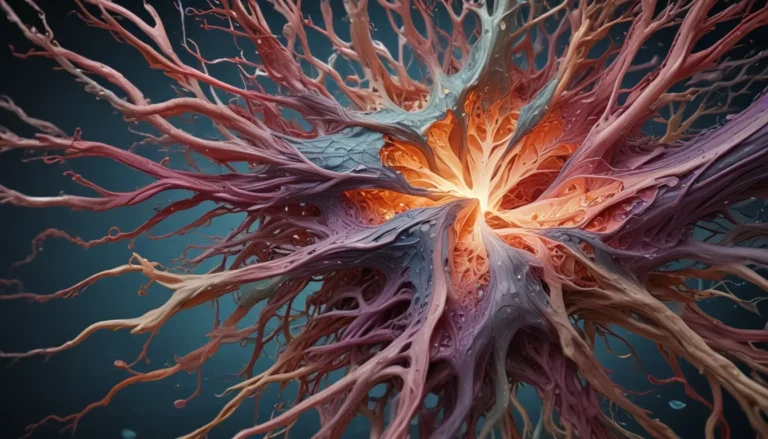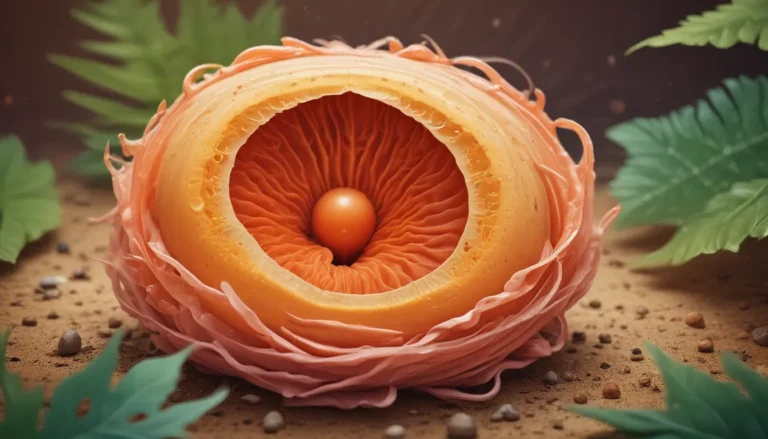A Note About Images: The images used in our articles are for illustration purposes only and may not exactly match the content. They are meant to engage readers, but the text should be relied upon for accurate information.
In the realm of human health and well-being, innate immunity stands as the stalwart guardian, defending our bodies against a myriad of pathogens. This intricate system, present from birth, works tirelessly to ensure our protection from harmful invaders. Let’s embark on a journey to uncover 18 fascinating facts about innate immunity, shedding light on its remarkable mechanisms and capabilities.
Exploring the Essence of Innate Immunity
Innate immunity, our body’s first line of defense, is a natural mechanism that shields us from a diverse array of infectious agents, including bacteria, viruses, and fungi. This primary defense system does not discriminate between pathogens, relying on general mechanisms like physical barriers, chemical defenses, and specialized immune cells to mount a swift response.
– The Guardians of Innate Immunity
- Physical Barriers: The skin acts as a formidable physical barrier, preventing pathogens from breaching our defenses. Mucous membranes in various tracts also aid in trapping and eliminating invaders.
- Chemical Defenses: Innate immunity produces antimicrobial substances like enzymes and proteins that directly combat pathogens.
- Specialized Cells: Neutrophils, macrophages, and natural killer cells play pivotal roles in detecting and eliminating pathogens swiftly.
– The Dynamic Response of Innate Immunity
- Inflammation: Innate immunity activates an inflammatory response to contain infections, characterized by increased blood flow, heat, redness, and swelling at the site of invasion.
- Rapid Action: Providing immediate protection, innate immunity acts promptly, albeit temporarily until adaptive immunity takes over.
- Wound Healing: Innate immunity contributes to wound healing by orchestrating immune cell recruitment and tissue repair processes.
Nurturing Our Natural Defenses
While innate immunity is a potent safeguard, certain factors can compromise its efficacy. Chronic stress, malnutrition, and medical conditions may weaken innate immunity, rendering individuals more susceptible to infections. However, through lifestyle choices like exercise, nutrition, and sleep, we can bolster our innate immunity, enhancing our overall well-being.
– Unveiling the Complexities of Innate Immunity
- Infant Protection: Newborns rely heavily on innate immunity, as their adaptive immune system is still developing, highlighting the vital role of this initial defense mechanism.
- Genetic Influence: Genetic factors impact the effectiveness of innate immune responses, contributing to individual susceptibilities to infections.
- Memory-Like Characteristics: Recent studies reveal that innate immunity exhibits memory-like traits, enabling a more efficient response upon repeated exposure to pathogens.
Collaborative Defense: Innate and Adaptive Immunity
Innate immunity and adaptive immunity work in tandem to provide comprehensive protection against pathogens. While innate immunity serves as the rapid responder, adaptive immunity offers tailored, long-lasting defense mechanisms through memory cells that recognize and neutralize familiar invaders.
– The Path to Therapeutic Breakthroughs
- Research Focus: Innate immunity remains a focal point in immunology research, unlocking valuable insights for developing treatments for a spectrum of infectious and immune-related diseases.
- Autoimmune Implications: Dysregulated innate immune responses can contribute to autoimmune diseases, where the immune system erroneously targets healthy tissues.
Embracing the Potential of Innate Immunity
In conclusion, innate immunity stands as a formidable fortress in our body’s defense arsenal, diligently safeguarding our well-being. Understanding its intricacies not only paves the way for innovative therapies but also illuminates the profound complexities of our immune system. By harnessing the power of innate immunity, we can advance medical interventions and conquer a multitude of health challenges.
FAQs: Unveiling the Mysteries of Innate Immunity
-
What is innate immunity?
Innate immunity is the body’s natural, non-specific defense system present from birth, protecting against a broad spectrum of pathogens using physical barriers and immune cells. -
How does innate immunity differ from adaptive immunity?
Innate immunity offers immediate protection against pathogens, while adaptive immunity develops specific responses over time and involves memory cells for enhanced defense. -
Can innate immunity be enhanced?
While innate immunity cannot be directly boosted, healthy lifestyle choices and vaccinations can support optimal immune function and offer enhanced protection.
By delving into innate immunity’s captivating realm, we gain profound insights into our body’s intricate defense mechanisms. Let’s continue our quest for knowledge and exploration, unraveling the enigmatic complexities of our immune system to forge a healthier future.






